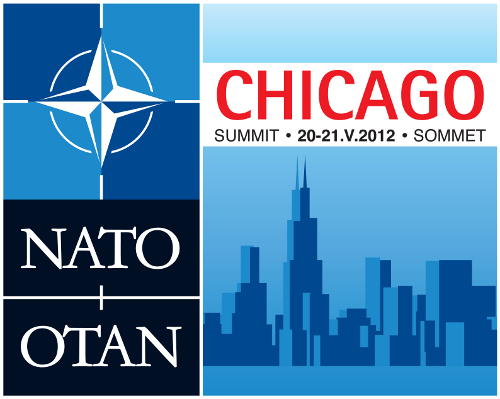
From James Joyner, the New Atlanticist: While the race to the exits on Afghanistan reached full stride with the election of François Hollande in France—which came with a promise to withdraw that pivotal nation’s forces by the end of this year despite a commitment at the last NATO summit to maintain a combat presence until the end of 2014—the declaration pretended otherwise: “The irreversible transition of full security responsibility from the International Security Assistance Force (ISAF) to the Afghan National Security Forces (ANSF) is on track for completion by the end of 2014, as agreed at our Lisbon Summit.”
The statement actually doubled down, pledging “NATO is ready to work towards establishing, at the request of the Government of the Islamic Republic of Afghanistan, a new post-2014 mission of a different nature in Afghanistan, to train, advise and assist the ANSF, including the Afghan Special Operations Forces”—despite it being far from clear who will pay for or staff this mission. But the allies nonetheless welcomed contributions and reaffirmed their strong commitment to the financial sustainment of the ANSF.
In a separate thirteen-point Summit Declaration on Defence Capabilities, NATO leaders whistled past serious questions about said defense capabilities, defiantly declaring, “The success of our forces in Libya, Afghanistan, the Balkans and in fighting piracy is a vivid illustration that NATO remains unmatched in its ability to deploy and sustain military power to safeguard the security of our populations and to contribute to international peace and security” while ignoring the very real shortcomings laid bare by that operation. The European members simply couldn’t have conducted that relatively minor operation, right next door, without America’s targeting personnel, intelligence, surveillance, reconnaissance and air-to-air refueling capabilities—or, for that matter, simply keeping enough bullets and gas in stock.
The successes pointed to on the capabilities front are small beer, indeed: an “interim ballistic missile defence capability as an initial step to establish NATO’s missile defense system;” the deployment of “a highly sophisticated Alliance Ground Surveillance system;” an extension of an air-policing mission over the Baltic States; and “steady progress” toward “improving our defenses against cyber attacks; extending NATO’s air command and control system; and augmenting our capabilities in Afghanistan for exchanging intelligence, surveillance and reconnaissance data and countering improvised explosive devices.”
Meanwhile, the United Kingdom and France are sharing a single aircraft career. . . .
At the conclusion of the previous NATO summit in Lisbon in November 2010, I wrote that, “Both the Strategic Concept and the words from all of the NATO leaders were pitch perfect. What remains to be seen is whether they will be followed by deeds.” It didn’t take long to find out that they wouldn’t. The commitment to the alliance in spirit was there, but most of the allies lacked the will and the wallet to actually fulfill their promises. This go-around, the words were closer to that reality. . . .
Eventually, Western economies will rebound. Or a security threat that can’t be ignored will emerge, forcing NATO to respond. Until then, the alliance will muddle through.
James Joyner is managing editor of the Atlantic Council. This essay originally appeared in The National Interest.
Image: NATO-Chicago-Summit-Logo.jpg
